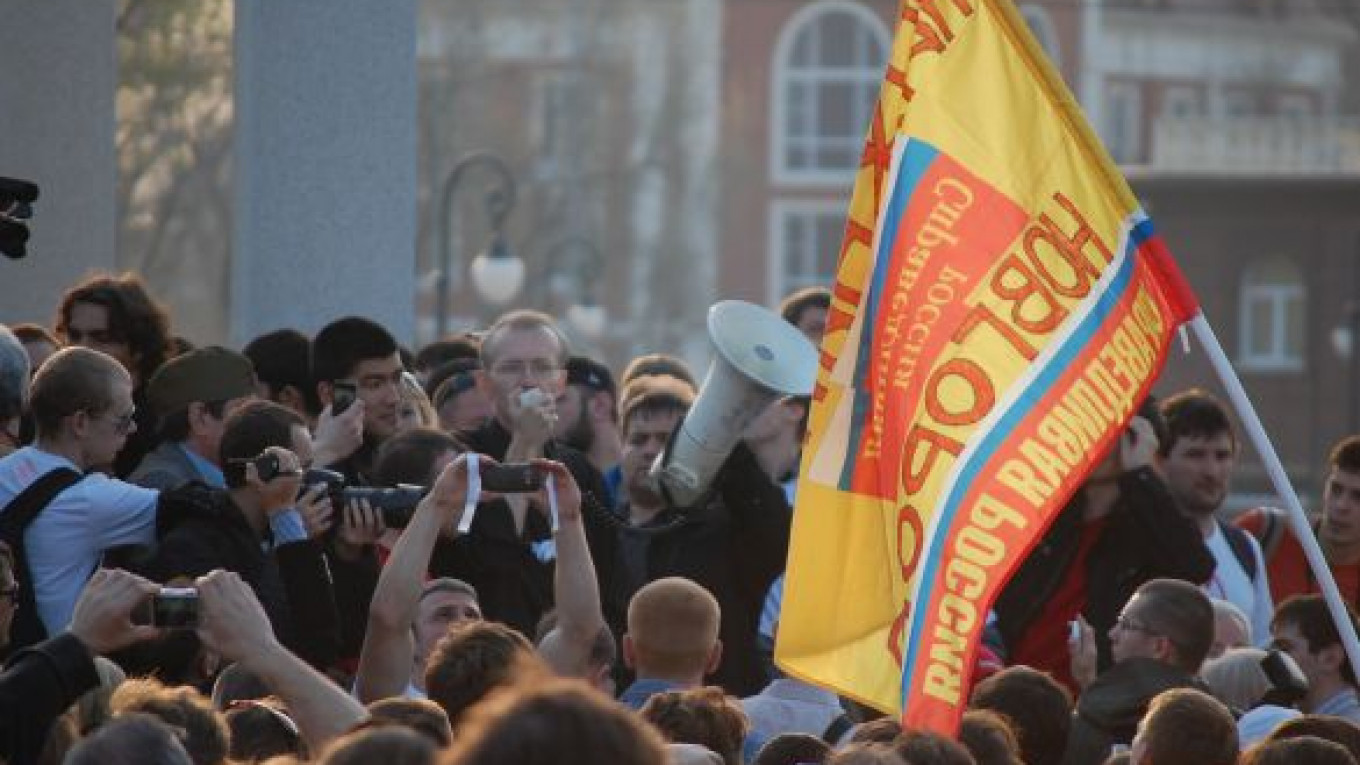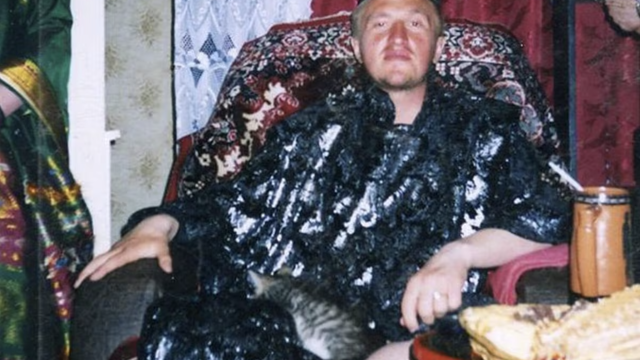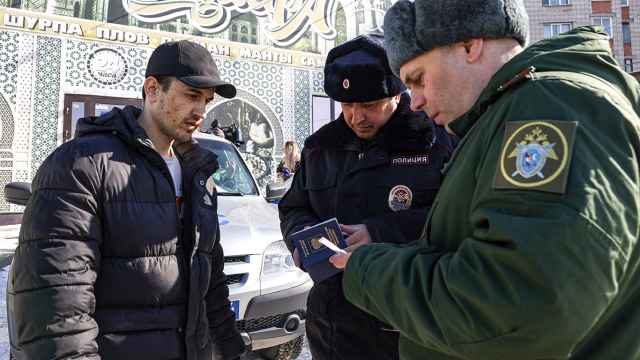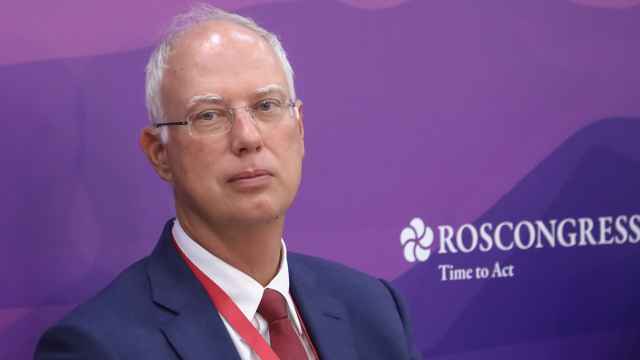Former Astrakhan mayoral candidate Oleg Shein has announced that on Tuesday he will end his 40-day hunger strike over alleged electoral fraud as his goals have largely been met.
Shein began refusing solid food March 16 to protest against his loss in the March 4 mayoral election in Astrakhan that he says was rife with irregularities. His crusade quickly became a rallying point for the nascent opposition movement with supporters flocking to the city to stand by his side.
Shein had said he would end his hunger strike once election officials agreed to review footage of alleged vote violations — which they did last week — and after his supporters who had been arrested were released.
On Monday, he said 16 of his 20 supporters jailed for participation in unsanctioned rallies had been released and that three others were set to be freed Tuesday. A decision regarding the last person will be made Monday, Shein said, RIA-Novosti reported.
"As a respectable and honest person, tomorrow, when our comrades are released, I can end the hunger strike," Shein said at a news conference.
He said the decision was final.
Earlier Monday, in a blog post on his LiveJournal page, Shein said 35 supporters had joined him and three others in the hunger strike, making a total of 39 people participating in the protest action.
Shein and his supporters have been protesting alleged violations in the Astrakhan mayoral election last month in which he officially received 30 percent of votes, compared with 60 percent for his opponent, United Russia candidate Mikhail Stolyarov. Shein ran as a member of the A Just Russia party.
Last week, the Central Elections Commission reviewed web camera footage from polling sites at Shein's request. Elections commission head Vladimir Churov said violations had been spotted in 128 of the city's 202 polling stations, though he said there was no evidence of falsification.
Shein said he considered Churov's announcement a victory and said it was a sign that a lawsuit seeking to annul the vote results had a better chance of succeeding.
A first hearing in the court case brought by Shein is scheduled for Thursday.
In the past month, Astrakhan has been visited by nationally known opposition figures rallying behind Shein's cause, including anti-corruption blogger Alexei Navalny, A Just Russia leader Sergei Mironov and television personality Ksenia Sobchak.
In recent days, Shein had been signaling that the hunger strike could end soon. In a radio interview on Kommersant FM over the weekend, Shein said: "We have fulfilled the most important task at the federal level, and the goals of the strike, in principle, have been reached."
Writing on his LiveJournal blog Monday, Shein called on his supporters to stop picketing in his support, saying he feared provocations that could lead to more arrests.
Supporters said they worried about Shein's health during the hunger strike, and on Monday he said he had lost 14 kilograms, down from 78 kilograms when he started. He said he experienced heart arrhythmia and had low blood sugar due to not eating.
Pro-Kremlin youth group Nashi had accused Shein of sneaking food during the strike and demanded that medical tests be performed to show whether he had been eating. Shein drank a glass of juice on April 12 in a gesture toward the elections commission after it handed over webcam footage he had requested.
A Message from The Moscow Times:
Dear readers,
We are facing unprecedented challenges. Russia's Prosecutor General's Office has designated The Moscow Times as an "undesirable" organization, criminalizing our work and putting our staff at risk of prosecution. This follows our earlier unjust labeling as a "foreign agent."
These actions are direct attempts to silence independent journalism in Russia. The authorities claim our work "discredits the decisions of the Russian leadership." We see things differently: we strive to provide accurate, unbiased reporting on Russia.
We, the journalists of The Moscow Times, refuse to be silenced. But to continue our work, we need your help.
Your support, no matter how small, makes a world of difference. If you can, please support us monthly starting from just $2. It's quick to set up, and every contribution makes a significant impact.
By supporting The Moscow Times, you're defending open, independent journalism in the face of repression. Thank you for standing with us.
Remind me later.






